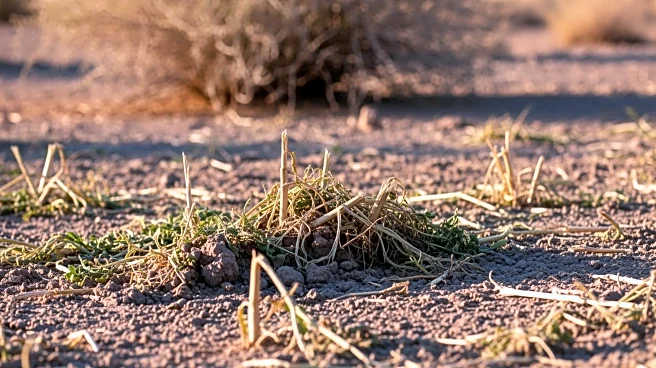What's Happening?
Farmers in the southern Dead Sea region are facing increasing challenges from wild boars that are damaging crops and entering residential areas. The boars, originating from both Jordan and local populations
near the Sdom Salt Flats, have become more aggressive, causing significant financial losses. The Tamar Regional Council and farmers have accused the Israel Nature and Parks Authority of not taking sufficient action to control the boar population. The boars have been breaking into greenhouses, leading to further damage and potential spread of viruses. The situation is exacerbated by poor sanitation and agricultural waste, which attract the animals.
Why It's Important?
The damage caused by wild boars poses a serious threat to agricultural productivity and economic stability in the affected regions. Farmers are experiencing substantial financial losses, which could escalate if the situation is not addressed. The issue also highlights the challenges of wildlife management and the need for effective strategies to balance conservation with agricultural needs. The growing boar population reflects broader environmental changes and human impact on wildlife habitats, necessitating a coordinated response from authorities and communities to mitigate the damage and protect livelihoods.
What's Next?
The Israel Nature and Parks Authority has issued a culling permit to manage the boar population. Farmers and local authorities are expected to collaborate on improving waste management and sanitation to reduce the attraction of boars to settled areas. Long-term solutions may involve habitat restoration and community education on wildlife management. The situation will require ongoing monitoring and adaptation to ensure the protection of crops and residential areas from further damage.









